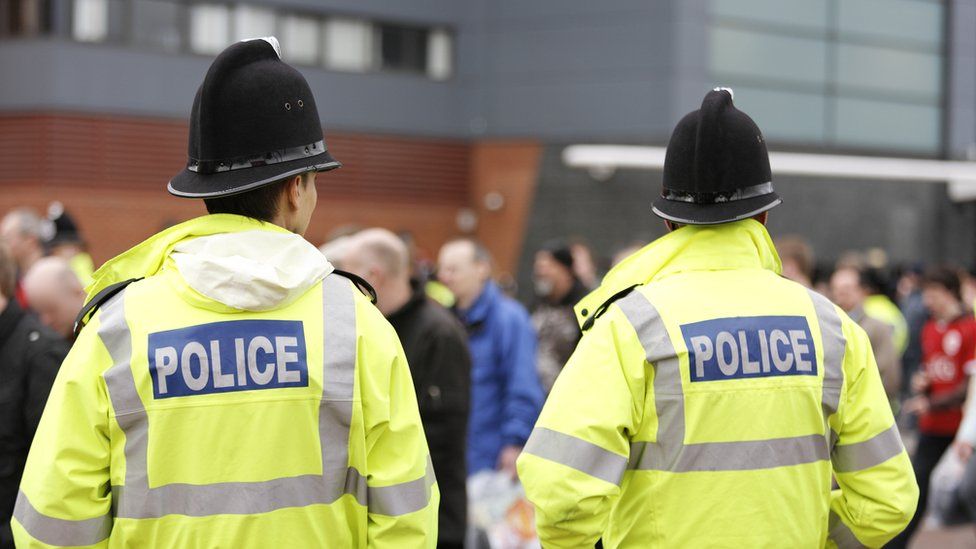
By Christy Cooney
BBC News
Police must investigate every theft and follow all reasonable leads to catch offenders, the home secretary has said.
Suella Braverman says it is “completely unacceptable” that criminals are often “effectively free to break certain laws”.
She wants officers to use evidence from smart doorbells and dashcams to solve more lower-level crimes.
But there are concerns the approach may take resources away from high-harm crimes such as rape and sexual assault.
And Labour branded it a “staggering admission of 13 years of Tory failure on policing and crime”.
Data shows that, in the year to March, just 4.4% of all theft offences resulted in someone being charged.
New guidance on investigating such crimes is to be issued to all forces in England and Wales.
It follows talks between the Home Office, the National Police Chiefs’ Council – which is made up of senior officers from around the country – and the College of Policing, the professional body for policing staff.
Writing in the Daily Telegraph, Ms Braverman said that “the most serious crimes flourish when lower-level criminality and antisocial behaviour are not tackled”.
“Victims of these awful crimes are failed when police simply don’t take an interest in following reasonable leads – instead just handing out a crime reference number,” she said.
She said forces had committed to follow up on evidence like CCTV, doorbell videos, GPS trackers, and witness accounts where there is a “reasonable chance it could lead them to catching a criminal and solving a crime”.
“The commitment applies to all crimes and action should still be proportionate, but we expect to see a radical change in the way the police approach theft, shoplifting and criminal damage,” she said.
Home Office figures show that, of all theft cases closed in the year to March 2023, the proportion closed because no suspect had been identified was 73.7%, the highest rate for any category of crime.
In the same year, only 3.9% of residential burglaries resulted in someone being charged. The equivalent figure for vehicle theft was 1.8%, while for thefts from the person it was just 0.9%.
Image source, Getty Images
Ms Braverman believes dashcam footage is an untapped resource for police investigating theft crimes
Shadow home secretary Yvette Cooper said police should be pursuing reasonable leads like CCTV anyway.
“The fact that the Tories are boasting about asking the police to do the basic minimum that victims of crime should rightly expect, whilst failing to tackle the underlying problems they have caused, shows how badly they have failed over the last 13 years,” she said.
In April, the government announced it had reached its target of recruiting an additional 20,000 more police officers in England and Wales, bringing the overall number of officers to 149,572.
The figure was around 3,500 higher than it was in 2010, when the Coalition began cutting numbers, although the increase was not enough to make up for the growth in the UK’s population since then.
Concerns have been raised that the loss of high numbers of more experienced officers between 2010 and 2019 could affect police performance.
Richard Garside, the director of the charity, Centre for Crime and Justice Studies, says, while the new policy sounds like a “no brainer”, he is concerned that it will divert resources away from more violent crimes such as rape and sexual assault.
“We have a tsunami of male sexual violence towards women and girls as it is,” he says.
“If the police are being told to put even more resources into tackling, say, car and phone crime, that means there’s going to be less time and less focus on those really serious violent offences that, quite rightly, the public are concerned about.”
Lisa Townsend, Surrey’s Police and Crime Commissioner, says the word “reasonable” is open to interpretation.
“What’s reasonable for one force won’t necessarily be reasonable for another, given the types of crime that they’re investigating. And it’s absolutely right that police will always base it on threat, harm and risk.
“But certainly in my own force, and other forces, there are times that we should be investigating further and it’s absolutely reasonable, and the public and the government are right to expect us to do so.”








